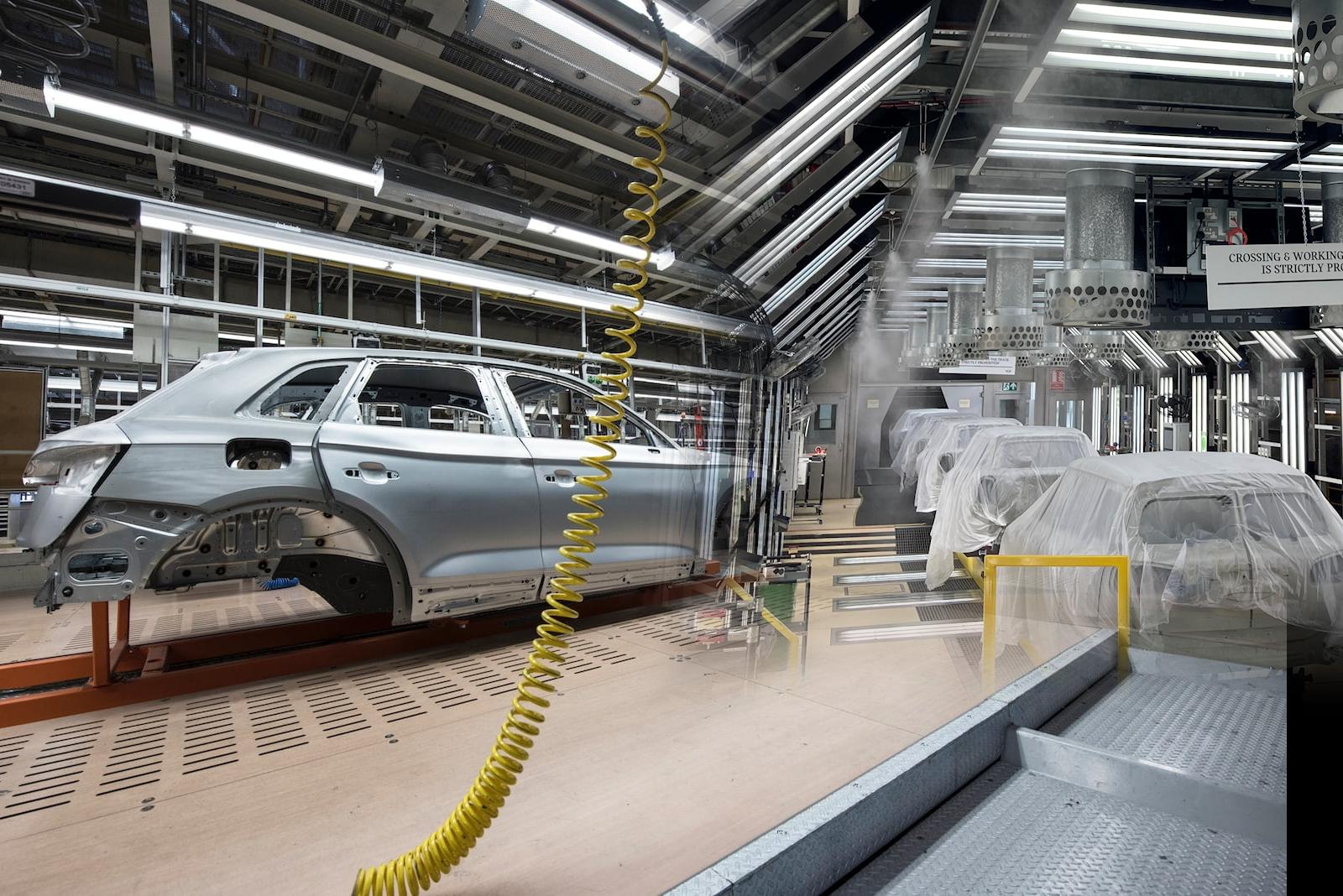Humidification for the Automotive Industry
Sealpump, Spray Technology Experts
Paint Shop Humidification & Static Control
Being able to accurately and reliably control humidity levels in the automotive manufacturing process can improve productivity and reduce rejected painted parts. There are several areas where a high quality humidity control solution can prove very effective.
Unpainted parts storage area:
Dust particles are created when unpainted parts such as bumpers are moved from storage areas to the paint shop ready for painting. As the parts are picked up and moved, the dust created can settle on the parts which, if not removed, can lead to the painted part being rejected at great cost to the car plant.
Our humidification systems can effectively reduce this issue by adding moisture to the area’s atmosphere, allowing the parts to reachREACH is an acronym which represents Registration, Evaluation, Authorisation... ...click for more the paint spray booths dust-free and ready for painting.
Paint Spray Booth
To ensure as little paint as possible is wasted when the paint is being transferred from the spray gun to the vehicle bodywork, a humidity level of around 70% rh is needed. By adding the moisture to the atmosphere, it can help avoid the problem of paint evaporation and in turn reduce the plant’s paint costs and reduce any dust particles in the spray booth.
Sanding Decks
During sanding, it is important to maintain a relative humidity of 55% moisture to reduce the electrical static charge of the surrounding air. This is so that the dust created is of a similar static charge to that of the car body surface.
This causes the dust to flow off the bodywork rather than be attracted to it, therefore reducing sanding time and improving the finish on the parts.
Vehicle Testing
Vehicle engines are tested in a number of different humidity levels and temperatures to ensure all of the car’s features function correctly in different conditions. Our versatile humidity control systems can help in this area by creating different conditions by accurately controlling the relative humidity.
Advantages
Less than five micronA Micron is one millionth of a metre. ...click for more droplets
Close humidity control
Increased production efficiency
Reduction in scrapped parts and less paint used.
Advantages
Non-drip system and self-cleaning nozzles
Low maintenance
Low running costs
Easy maintenance and installation
For Technical Information and Specifications,
download our PDF



